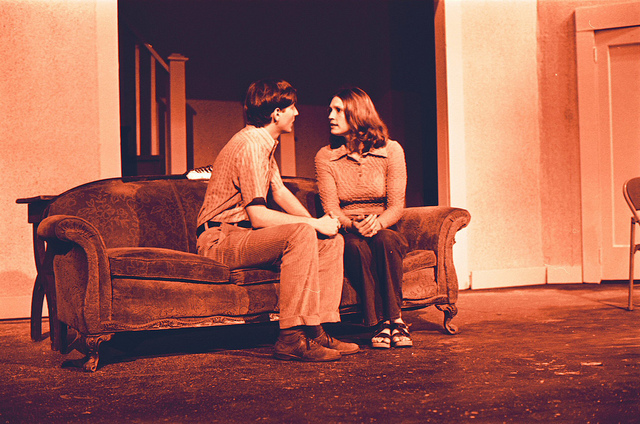Our society is rapidly changing all around us. We see it in our growing fascination with dystopia genres within our movies and books, a fixation with a culture that rejects popular trends, and music that pushes us to be everything we can be and do everything we can do. One subject that is affecting the lives of our generation is the subject of sexuality. Once considered strongly tabooed in our American society and culture, human sexuality is now more openly expressed and experimented as boundaries are being pushed and tested. It seems as though our TV shows, movies, dances and song lyrics are obsessed with sex. Even today’s hot-topics, such as gender roles, relationships and homosexuality concentrate on trying to understand human sexuality. With a world so drawn to the human body and nature’s desire for passion, where do we, as Christians, set the boundary lines? How do we teach God’s intentionality for sex within the classroom, among our peers, and within our families?
Recently, two professors from our university attended a conference about human sexuality. I was able to interview one professor, Dr. Tim Crutcher, about his beliefs on how to implement a Christian perspective when discussing human sexuality and its place in the classroom. The following is our conversation:
Me: Do you believe that the way human sexuality is represented in our culture is an issue, and how do we talk about it in an environment like this?
Crutcher: It is an issue in our culture, that’s a given. We know people talk about it within our dorms and in other parts of conversation,
Me: What is it like to address human sexuality in a Christian University? What does it mean to talk about it in a Christian, academic community?
Crutcher: I talk about this topic in Christian Faith and Life. We give it about a whole week, and it comes up consistently. Even though it’s not the most comfortable subject, we talk about it because it is the most public conversation in our culture, and, because our culture endorses certain kinds of values, I think it’s important that Christian academics, Christian intellectuals and Christian communities engage the discussion. If you don’t engage in discussion, people will just listen to the answers given by everyone else, and when the Christian answer is absent from the conversation, there’s no way for people to decide whether or not Christian answers make sense.
This generation seems to be less shamed than the previous generations have been, given the fact that the academic institutions like ours have always been dealing with a generation gap, since professors and students are not from the same generation. I think we need to work a little bit harder to say “hey, these students are talking about it, you know, they’re listening to people who talk about it in our culture, we better address it in ways that are appropriate.” It’s important that as a community, we form a Christian community of disciples, so I do think it’s important. One of the things I think are important when approaching a topic like this is to help people have informed discussions. We live in a very emotive culture—people tend to react based on how they feel and not always ask the question, “why do I feel this way? Do my feelings line up with reality?” One of the things a college is supposed to do for you is to teach you how to think, and not just go with your instinctive intuitional, emotive reactions to things.
Creating some space where we can talk about these things in a clinical perspective is important, but it depends on the class. Obviously, there are real, existential issues people have faced in the room, either because of abuse, statistics tells us that one in four women and one in five men have suffered some sort of sexual abuse, or because there are destructive patterns they know, like pornography, so it can be uncomfortable to talk about, but that can be all the more reason to talk about it because we have to get some truth handles on these kind of discussions. So, I would like to provide some space where we can do that, we can begin to put pieces of truth on the table so we can see how they relate to one another.
[author image=”http://echo.snu.edu/wp-content/uploads/2014/09/Celeste-Forrest-Bio-Pic.jpg” ]Celeste Forrest, Staff Contributor
Celeste is an English Education major with a passion for writing. She dreams of becoming a high-school English teacher and author. She enjoys sleeping, reading while its raining, spending time with her amazing friends, and drinking Puerto Rican coffee. [/author]
